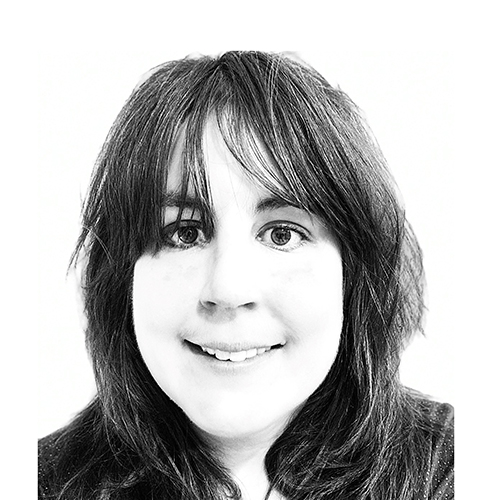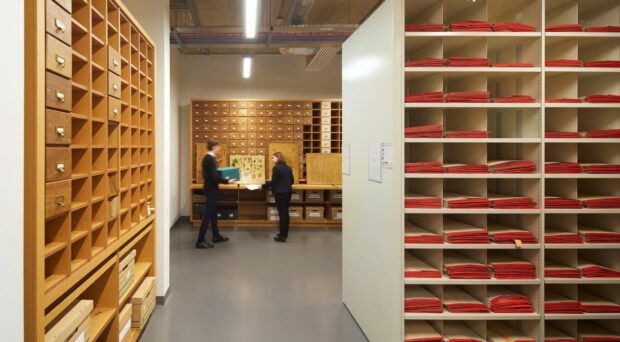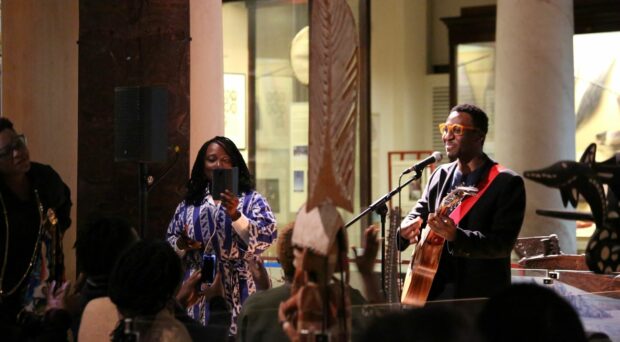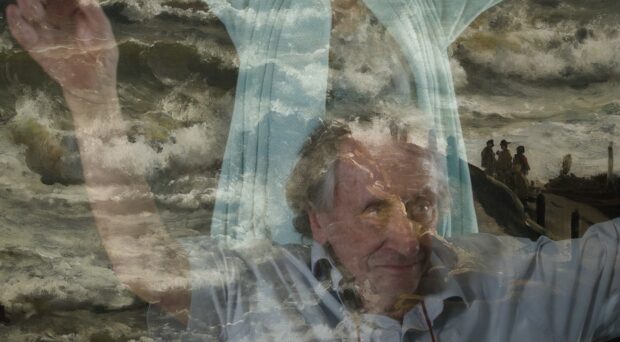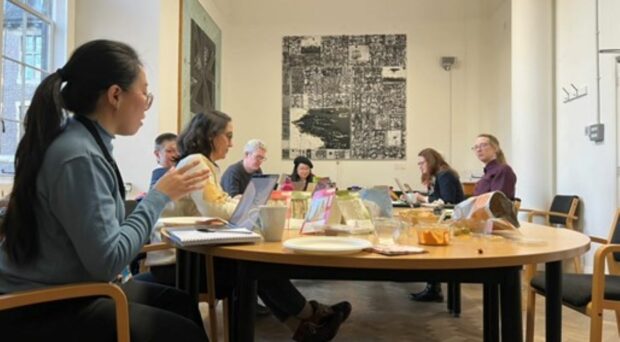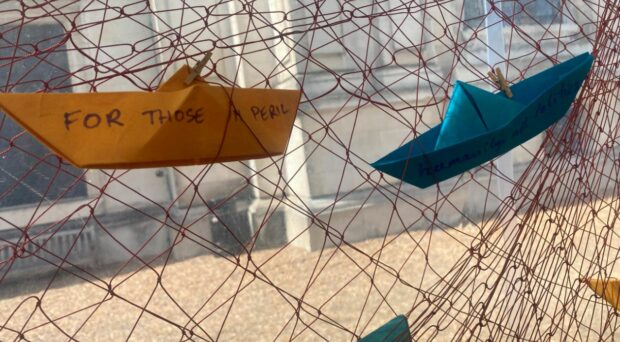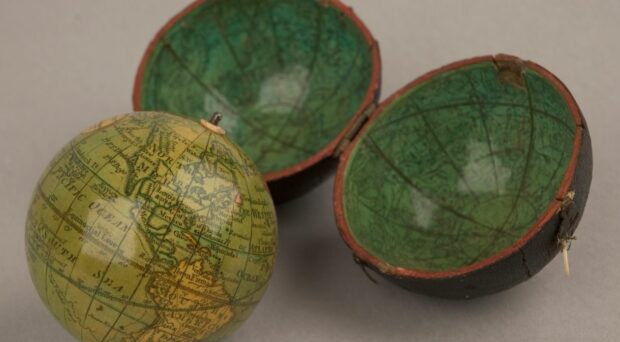Last month, we marked one year since the introduction of measures to limit the COVID-19 pandemic.
Our last update was published in October 2020, just as the University of Cambridge Museums and Botanic Garden (UCM) were prepared to be fully open to the public again for the first time in six months. A return to normality? Not quite. Our pandemic journey over the past six months has included more than a few twists and turns. Following Government guidance, the museums have reopened and closed to the public twice as part of England’s national lockdowns, while the Botanic Garden has remained opened throughout in order to provide a green space for walking and wellbeing.
Since October, we have continued to experiment with new ways of supporting our communities through the crisis, to embed what we learned earlier in the pandemic, and, with fingers crossed, prepare for a smooth reopening again from May. Although we’ve been closed, there’s a lot to report. The activity that follows is just a snapshot of the past six months.
Research & Collections
As with so much of our work, this year saw research – including both the research led by and within the UCM institutions as well as the international research community we support – move into the digital sphere.
Legacies of empire and enslavement
The Legacies project is the UCM’s ongoing investigation into the complex histories of our collections, examining the impact of colonialism, legacies of enslavement, racial inequality and further challenging topics in dialogue and consultation with our communities and audiences. In 2022/23, we will share our first findings in a year of public programming, culminating in a major joint exhibition at the Fitzwilliam Museum co-curated by Dr Jake Subryan Richards (LSE) and Dr Victoria Avery (Fitzwilliam Museum).
This period saw some exciting developments for the project, with an Advisory Group of critical friends, chaired by Professor Sujit Sivasundaram, joining us to provide guidance and insight at project management level, and the arrival of Danika Parikh into post as UCM Research & Engagement Fellow. We were also pleased to secure investment from the Esmee Fairbairn Collections Fund to support a Communities Coordinator, who will work across the collections and with our communities. Since spring 2020, staff from across the UCM have been sharing ideas and potential lines of inquiry for the investigation, and a research framework and long-list of objects for the exhibition have been developed in consultation with the Advisory Group. A dedicated workshop with student representatives was held in December, which will help shape the direction of future consultation activity.
In addition to the Legacies project, UCM staff have been actively involved in developing decolonisation practice in the wider sector, particularly in the natural sciences, with the Sedgwick Museum’s Director and Museum of Zoology’s Assistant Director presenting and convening at major sector conferences, including NatSca’s Decolonising Natural Science Collections conference in November 2020 – if you missed out, all the talks are available on YouTube.
The Museum of Zoology’s Assistant Director Jack Ashby on the “Political Platypus and Colonial Koala” at the Decolonising Natural Science Collections conference
How can scientific techniques help us understand the past?
That’s the focus of heritage scientists, who apply scientific approaches to enable us to better understand and preserve the historic collections in our care. Heritage science at Cambridge has recently been boosted by the establishment of CHERISH, the Cambridge Heritage Science Hub, to bring together specialists in the field, and, in January, by the award of £3 million from the Arts & Humanities Research Council (AHRC)’s Capability for Collections Fund.
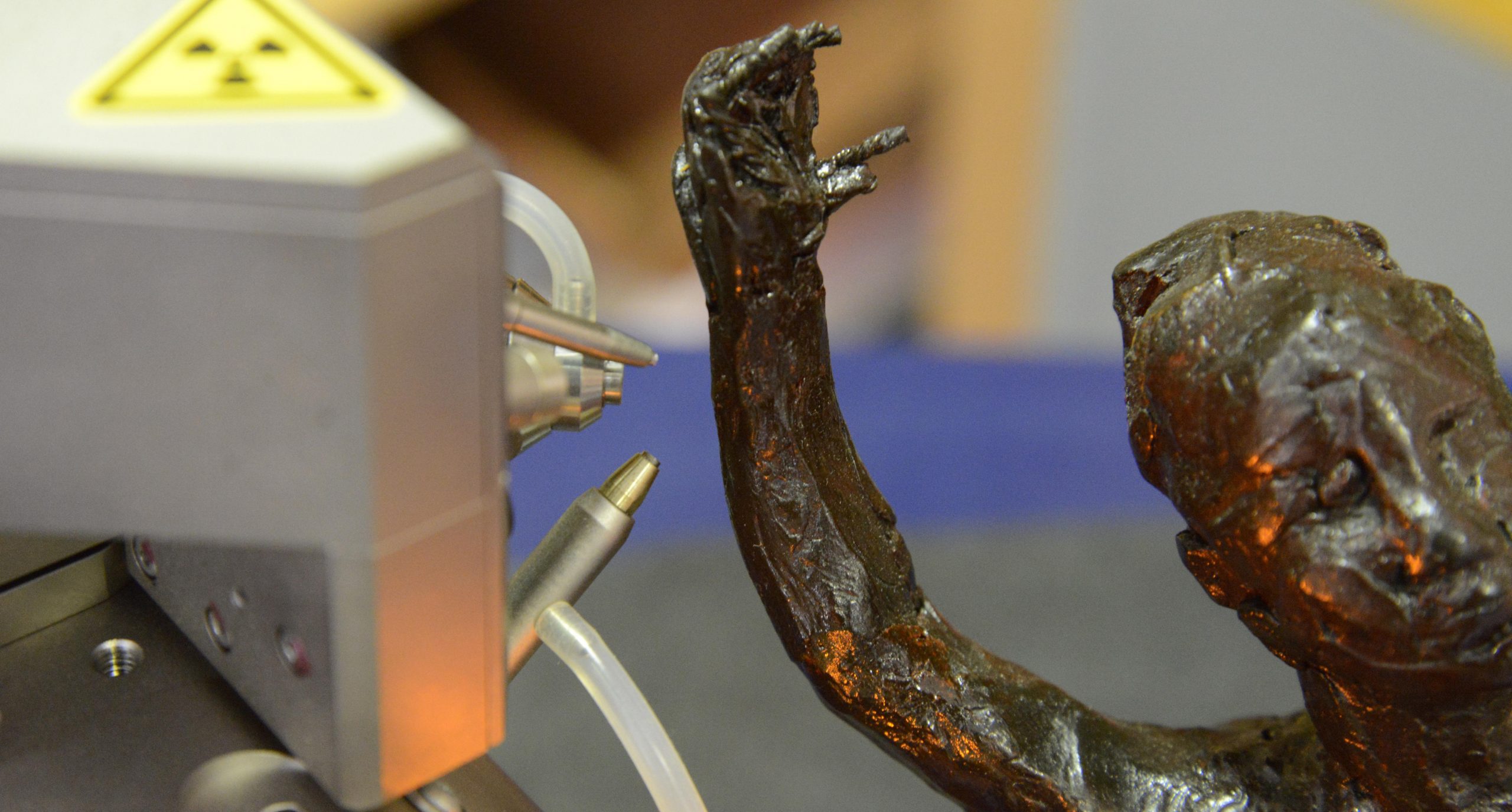
The AHRC funding enables the Fitzwilliam Museum, Museum of Archaeology and Anthropology (MAA) and Hamilton Kerr Institute, together with the University Library and Macdonald Institute, to invest in new equipment and refurbishment, enabling us to support researchers from across the world to undertake new research into the collections.
Plastics in Peril
“Plastics have become indispensable to our lives and so are found in all parts of our heritage, but during the century or so of their use they have gone from seeming like a miraculous modern product to being despised for cheapness, and now they are positively demonised for the threat they pose to their environment. Their story is difficult, but highly significant, and as museums we have a duty to look after these items that reflect the development of our lives and history.” – Julie Dawson, Head of Conservation at the Fitzwilliam Museum, introduces the Plastics in Peril conference
Plastics are a conservation timebomb: as plastic objects in museum collections, some of them now a century old, begin to degrade, they represent a huge challenge to conserve. The UCM’s Plastics Project explores approaches to identifying and conserving plastics, and we were due to host a major international conference on the subject in March 2020 – which turned out to be unfortunate timing. However, a new partnership with the Leibniz Association of Research Institutes in Germany enabled the conference to take place online and on a grander scale in November 2020. Nearly 1000 delegates from across the world joined the discussion of topics related to plastics conservation and the sustainability of conservation practice.
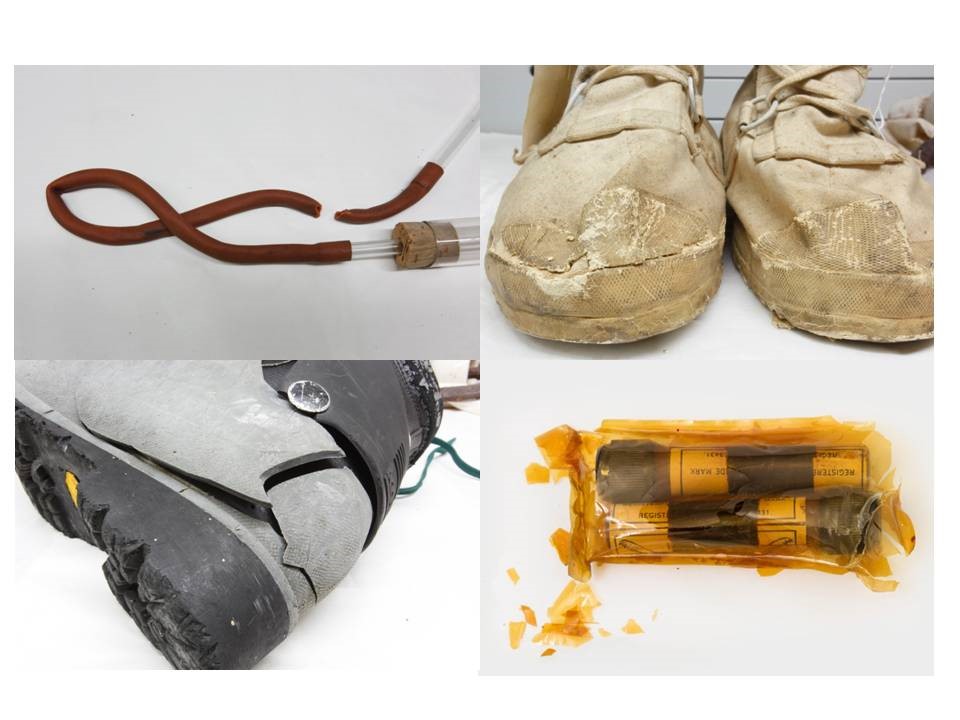
The theme of sustainability in conservation and collections care was further explored in January at the annual UCM/SHARE Museums East Collections Care Conference, which took the United Nations’ 17 goals for sustainable development as its starting point.
Rethinking Relationships
The pandemic has also limited our ability to facilitate the in-person encounters with objects that are the bread and butter of our work as research collections. While technology can’t directly replicate that experience, it has allowed us to continue to support the international research community with the help of new tools, including new collections portals at MAA and the Whipple Museum of the History of Science, both launched this year.
“[Museums] play a very vital role in enriching the educational process by exposing the public to their history in a positive way; assisting future generations to understand and appreciate their history and culture, and take pride in the achievements of their forebears. It is therefore important that they have their records right, and tell the actual or near-real stories of the cultural objects as known and appreciated by the communities they hold meaning to.” – Margaret Akinyi Otieno, National Museums of Kenya, researcher on the Rethinking Relationships project (full blog post on the Horniman Museum website)
Rethinking Relationships is a project connecting researchers, museum professionals, community representatives and other stakeholders in Kenya and Nigeria with four UK museums – MAA, the Pitt Rivers Museum, Horniman Museum and World Museum Liverpool. When COVID-19 restrictions made travel between the three countries impossible, the project’s work shifted online. Two teams of researchers came together in Kenya and Nigeria to research artefacts from their countries now in the four UK museums, drawing on data made accessible in online catalogues such as MAA’s new collections portal. Their research will be added to the collections record for each object. This online delivery of the project ensured that while participants were unable to meet in person, relationships have been strengthened and crucial thinking about the future of these collections has been able to continue to develop.
The Human Touch
A year of hand sanitiser, deep cleaning, and social distancing has made many alive to the value and danger of our sense of touch, and the Fitzwilliam Museum’s new exhibition, The Human Touch, even more resonant. Installed for a January reopening that proved not to be possible, the exhibition will open (hopefully) in May, exploring through 150 objects ranging from medieval manuscripts and love tokens to works by Judy Chicago and Richard Rawlins. In the meantime, street artist RUN has installed two large-scale murals at Parkside Pool and Jesus Green Lido in the city centre, giving residents a taste of the exhibition’s themes.
Supporting and collaborating with our communities
As reported in our previous post, Nine Collections, Six Months, the UCM’s focus in the first months of the pandemic was to play our part in supporting Cambridge’s most vulnerable communities, working with the City Council and our community partners. In the second half of the COVID-19 year, that activity has very much continued. We have also begun to share and embed what we have learned, introducing new structures for consultation and partnership, and embedding our communities’ thoughts and perspectives within the museum space.
Crafting in the post
While people couldn’t come to the museums, we sent the museums to them. During the autumn, we created resource packs reaching 95 adults including those supported by Wintercomfort, Addenbrooke’s Dialysis Unit and North Cambridge Community Development.
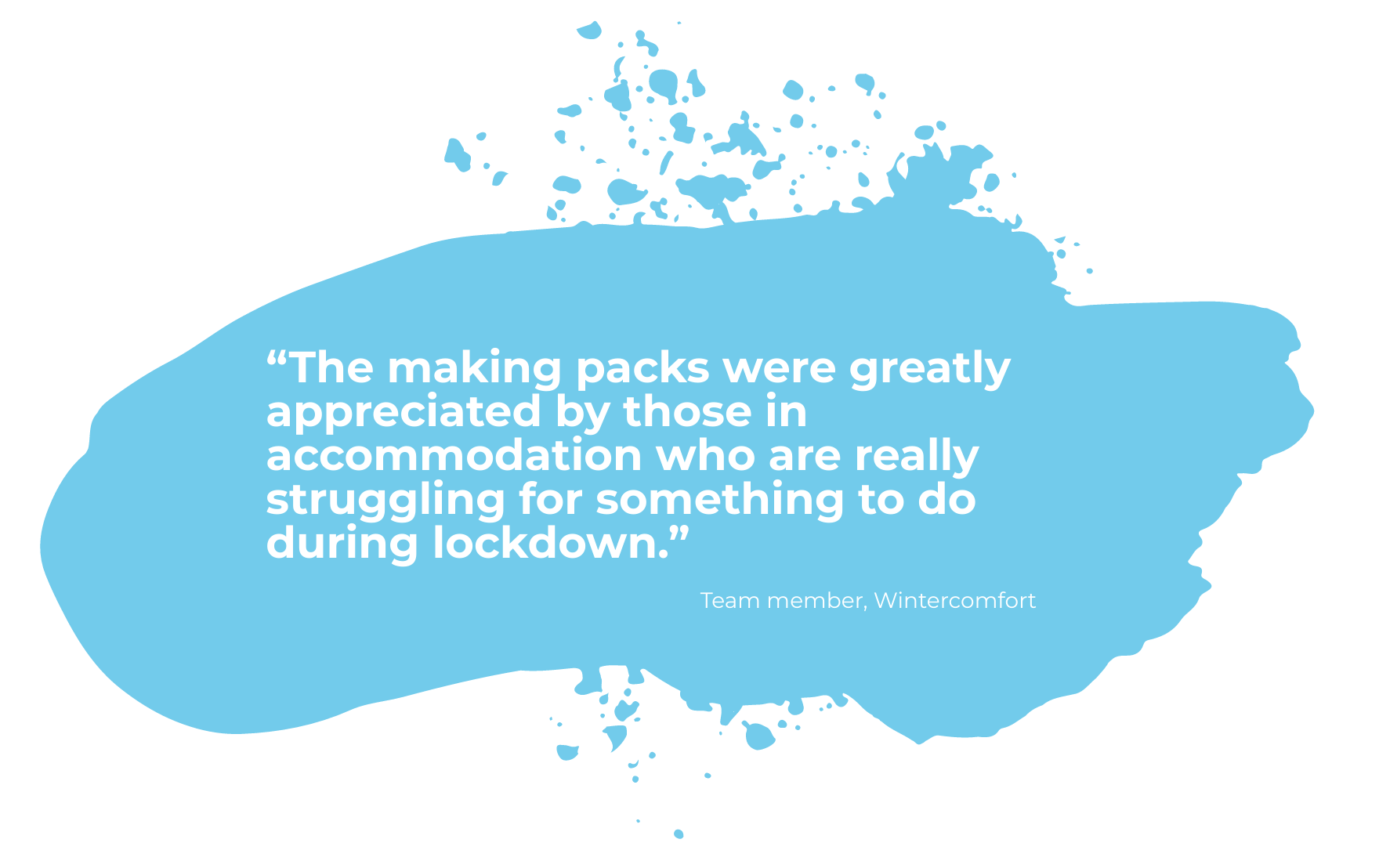
We also trialled the remote delivery of two online artist-led workshops for blind and partially-sighted participants, sending out tactile resources and materials to them in advance, and will continue to develop this offer.
Meanwhile, Portals to the World courses, supporting patients with a dementia diagnosis and their carers, were hosted by the Museum of Zoology and Museum of Classical Archaeology, using bespoke creative activities recorded by Fitzwilliam Museum Studio Artist Nathan Huxtable in his home studio.
Supporting young people with SEND during lockdown
In November, Ofsted reported that across all age groups, children with special educational needs and disabilities had been seriously affected in both their care and education as a result of the pandemic, as the services that families relied on were unavailable. With schools closed, most remote learning provision focused on young people in mainstream education. In October, we prioritised welcoming back young people with SEND with two disability-friendly openings at the Sedgwick Museum of Earth Sciences and Museum of Zoology.
This morning is a special opening for families with children who have sensory disabilities. We’re looking forward to seeing everyone who has booked tickets. pic.twitter.com/WZwGr6xVta
— The Sedgwick Museum (@SedgwickMuseum) October 29, 2020
Since the closures, we’ve sent out 200 activity packs enabling families to connect with the Whipple Museum, MAA, Polar Museum, Botanic Garden and their collections, building on learning from earlier in the pandemic.
Love to see our @CamUnivMuseums #SEND
packs being used for such lovely creative experiments.@KaitlinFerguson you’ll enjoy these photos! https://t.co/r3kQYXfz0g— Marie Kennedy (@Marie_Kennedy_) April 12, 2021
We’ve also created a new search function on the UCM’s Home Activities page to ensure that young people and the families can filter for SEND-friendly things to do and learn: anecdotally, we believe we’re among the first museums to put this in place.
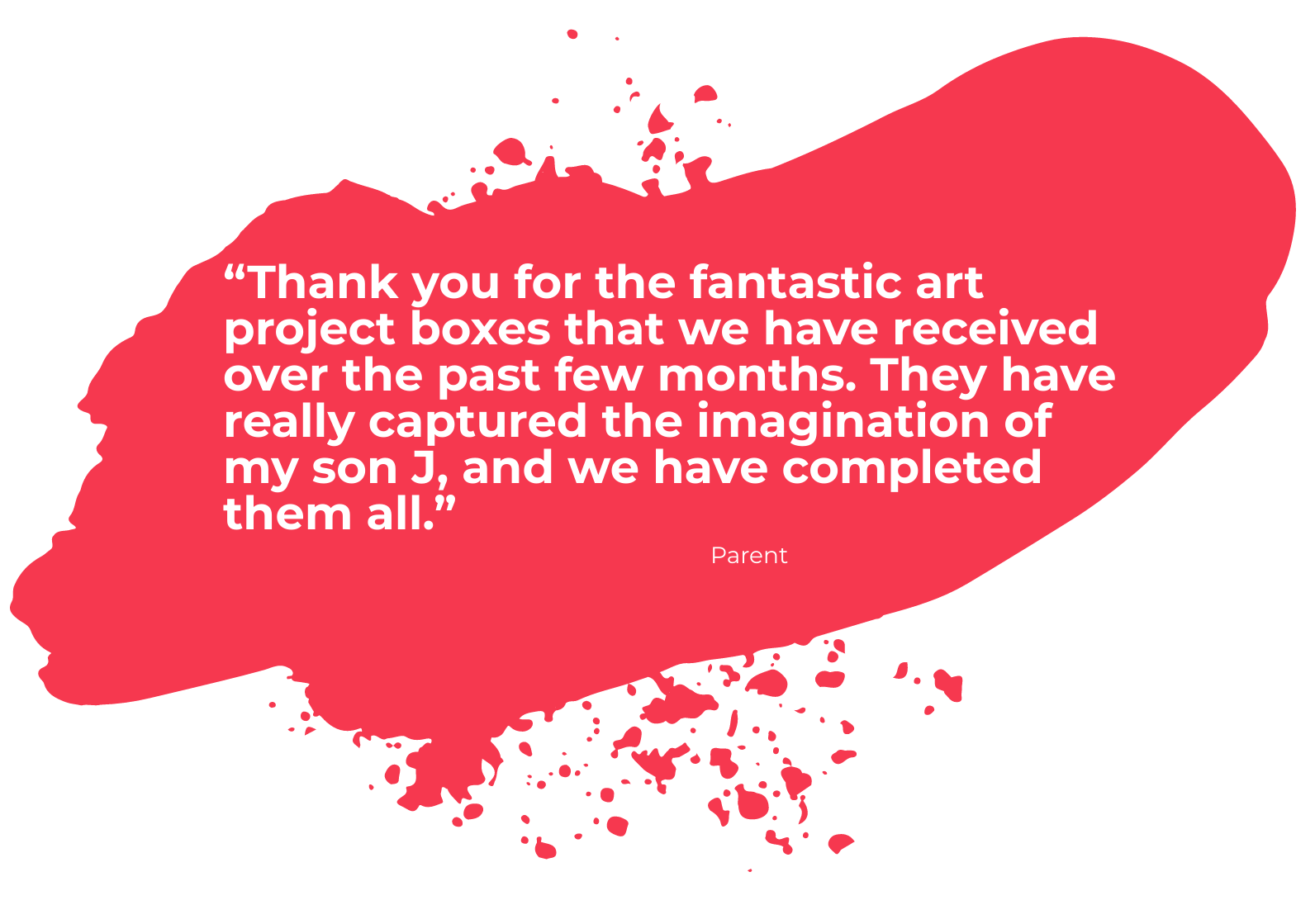
We’ve continued to deliver our monthly Arts Pioneers club remotely, as well as creating packs and online activities for families connected with East Anglia’s Children’s Hospices (EACH).
A Community Panel for the UCM
In February we were thrilled to welcome the 12 members of the UCM’s new Community Panel to their first meeting. The panellists have kindly agreed to help the UCM to pilot a new approach to ensuring our communities are involved in decision-making around the UCM’s joint programmes. They are drawn from a range of our community networks and partnerships, and will be working with us over the coming year, providing feedback and critique around a variety of UCM activity and operations, including volunteering and programming.
Making change in the galleries
What does a tiny Roman figurine fragment, a well-travelled typewriter and an imposing bust of Queen Victoria have in common? They were all among the objects with unheard stories that inspired the UCM’s audiences last summer to create over 30 new works of art, audio and video as part of the Museum Remix: Unheard project. Over the past six months, the Remix team has focused on the development of new digital labels which will allow visitors to access the community content directly from the museum galleries. We worked with UK/Bangalore-based design agency Studio Carrom, who created a label template and visual identity for the project.
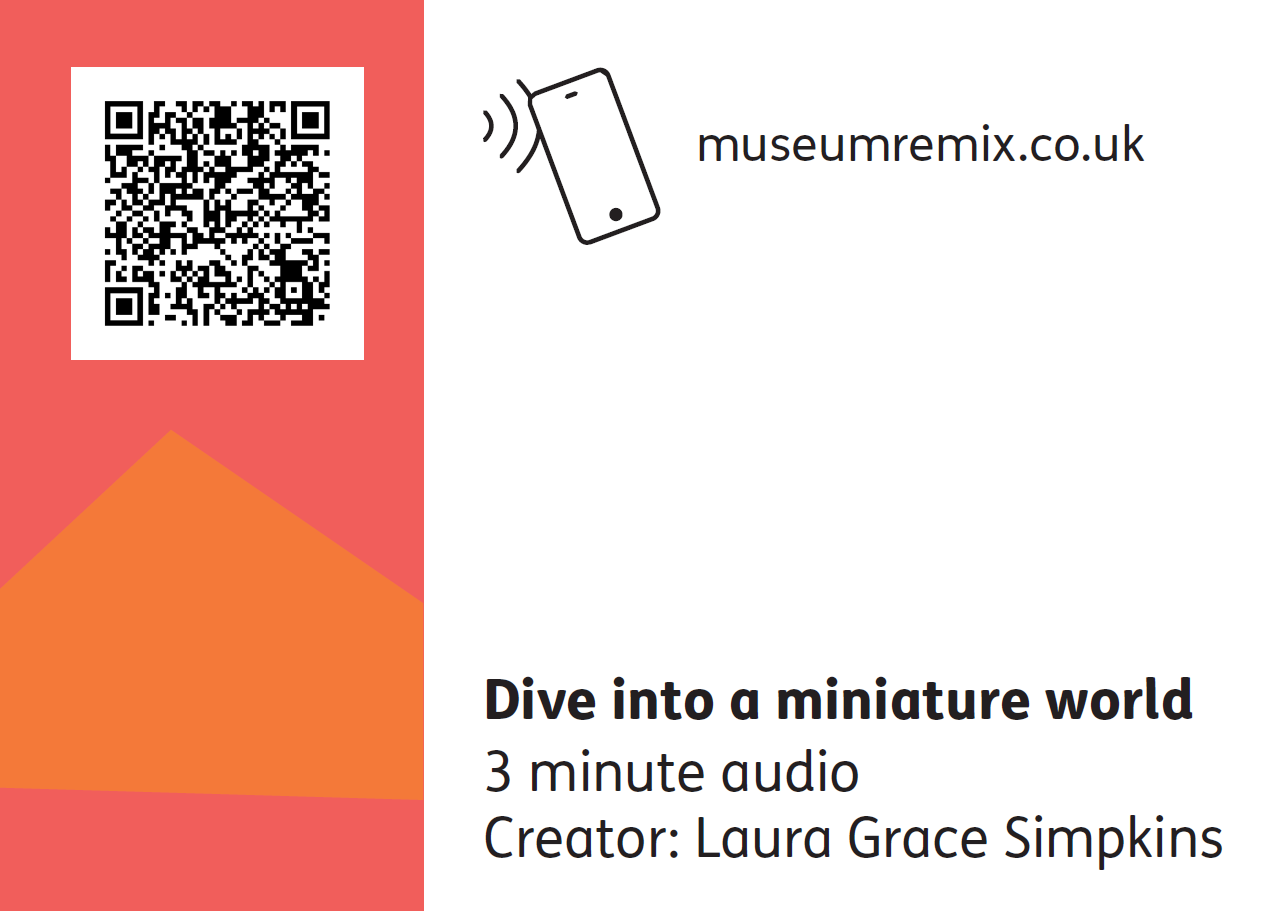
The labels feature QR codes and contactless (NFC) technology, allowing visitors to access content on their phones and the project team to evaluate the use of these technologies in the galleries. In addition to artwork and interpretation from the Museum Remix programme, the labels will also allow visitors to access newly-recorded content from the UCM’s Bridging Binaries LGBTQ+ Tour guides, now available on SoundCloud.
The labels will be installed in time for the reopening of the museums in May, marking the first time this approach has been used across the UCM venues.
When we reopen to the public, visitors will also be able to explore new interpretation at MAA as part of the RePresent Project. The labels were created by members of the Cambridge African Network and installed in October. Working with facilitators Danika Parikh, Korantema Anyimadu and Tara Okeke, each participant in project shared their thoughts about a chosen object through a new label and audio recording, plus an audio tour of the display.
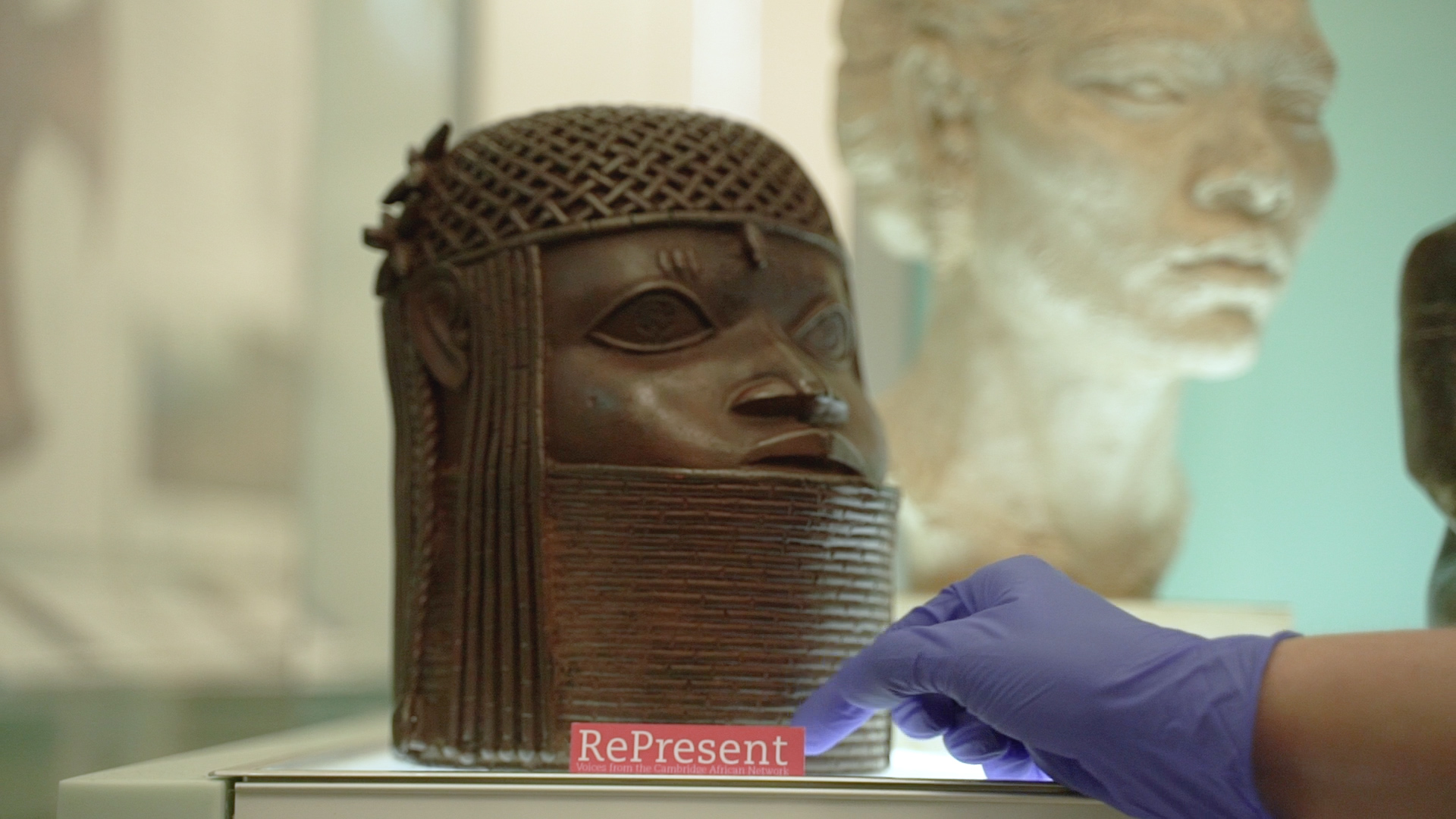
Creativity, discovery & dialogue for everyone
We’ll remember the past six months as the time digital programming really took off. In December the Museum of Zoology hosted an online festival, 12 Days of Winter Wildlife, sharing tips about spotting wildlife in the colder months and how to take care of winter wildlife from home, as well as an incredible digital carol singing performance of The Twelve Christmas Critters. This reimagined the Twelve Days of Christmas with the help of museum volunteers, whose individual recordings were expertly blended by PhD student Kate Howlett. In March, the UCM contributed to the first ever Cambridge Festival, contributing events ranging from a poetry reading hosted by the Museum of Classical Archaeology to a Wildlife Diaries Q&A with the Botanic Garden and Museum of Zoology team streamed live on location from the Garden.
In addition to sharing our collections as widely as we can through digital programming, we have continued to work with strategic partners and schools across the City and beyond to support young people and families. It goes without say that it has been a tough few months for children and their families as they managed with home learning through the two national lockdowns, as well as for young people making their first steps into working life. In all our work we have been mindful of the potential for digital exclusion – not everyone has access to the internet, for example, or is confident in using digital platforms – and adopted a blended approach where possible with a mix of digital and print or physical resources.
ChYpPS off the old block
Cambridge City Council’s Children and Young People Participation Service (ChYpPS) works closely with children and families in areas of the City experiencing higher levels of child poverty. While the UCM has taken part in ChYpPS summer holiday initiatives for many years, our partnership with ChYpPS has deepened this year, partly as a result of working very closely together to support children and young people through the initial stages of the pandemic. We now work with ChYpPS to deliver targeted family activities every school holiday and half term, and work together in a much more embedded and sustained partnership across the year. Activities so far have included ticketed online sessions and hands-on activities, with an aim to move towards a mix of drop-in and bookable onsite and digital activities as the museums reopen.
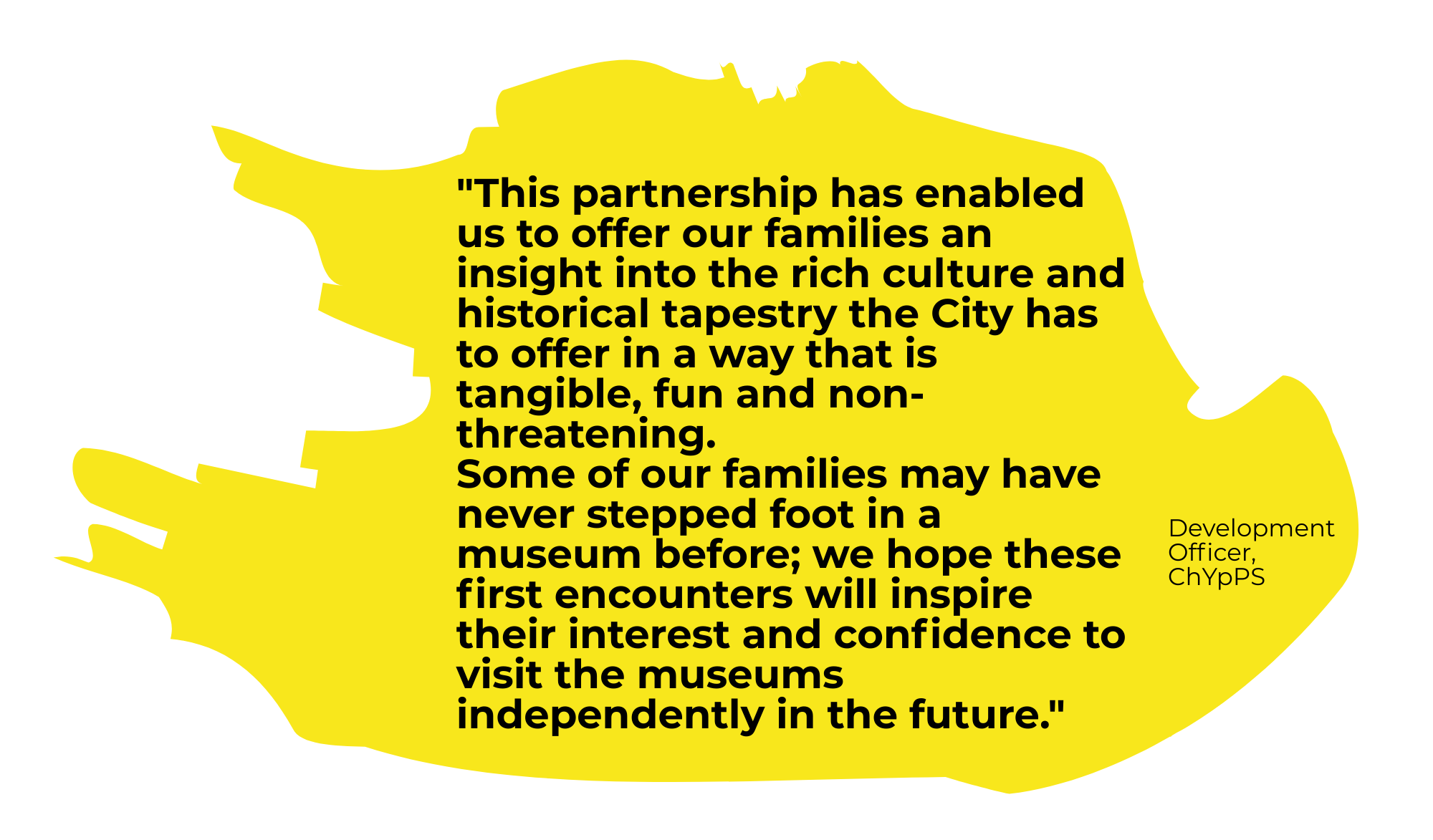
Twilight at Home
Collaboration with ChYpPS was at the heart of Twilight at Home in February, which took the place of our usual annual large-scale family event Twilight at the Museums. Twilight has previously seen venues across Cambridge and the county open their doors for torchlit exploration and hands-on activities. The event creates a buzzy and exciting atmosphere to welcome in families and attract first-time visitors, with promotion targeted at families in areas of low cultural engagement and higher socio-economic deprivation. In 2020, Twilight was enjoyed by over 12,000 visitors over the course of three hours.
For 2021, Twilight was ‘at home’, with the programme focused around three strands: a range of downloadable activities available on the UCM website and available to all; bespoke activities and supporting resources for children with SEND, created by artist Caitlin Ferguson; and targeted work with families together with ChYpPS.
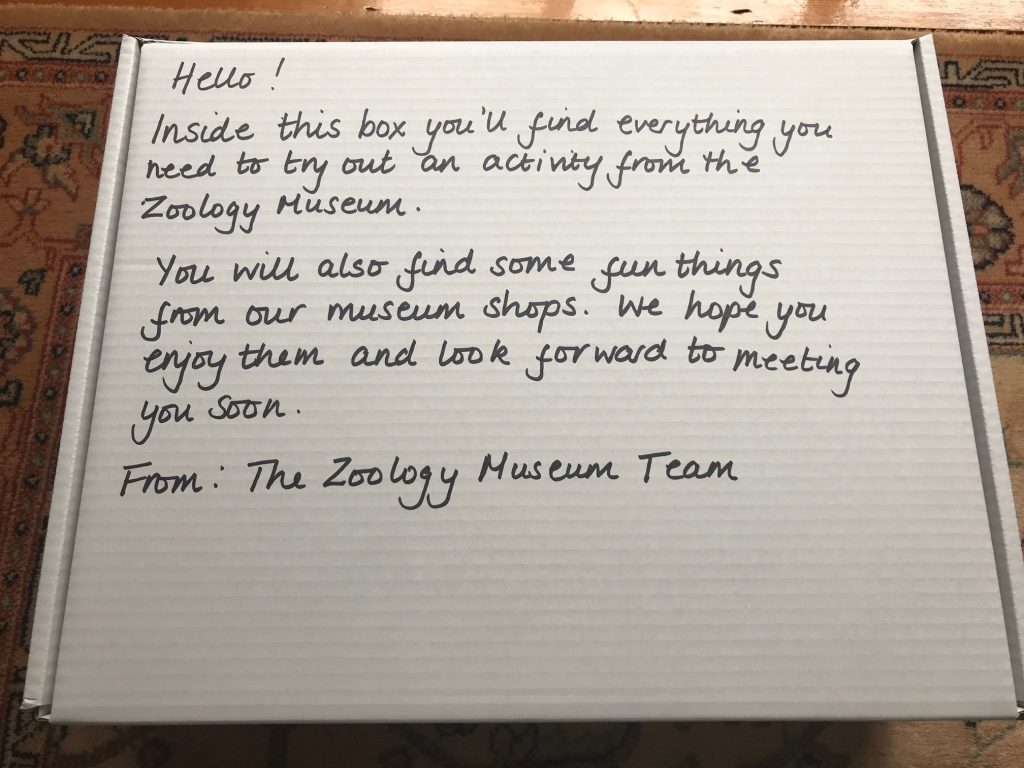

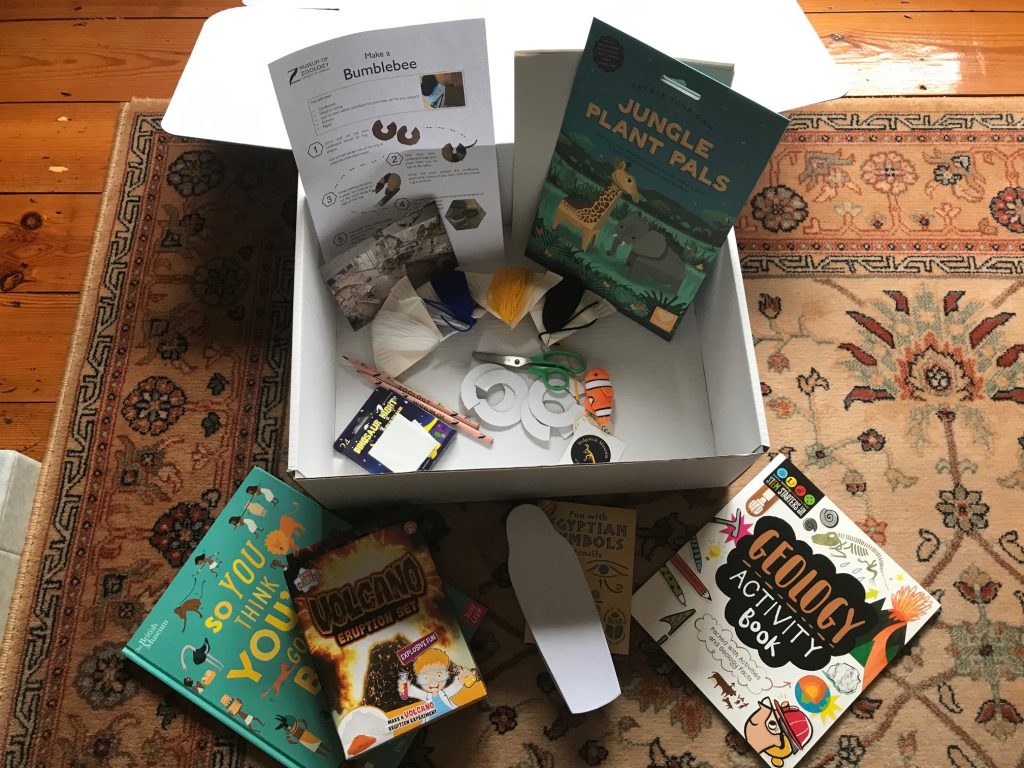

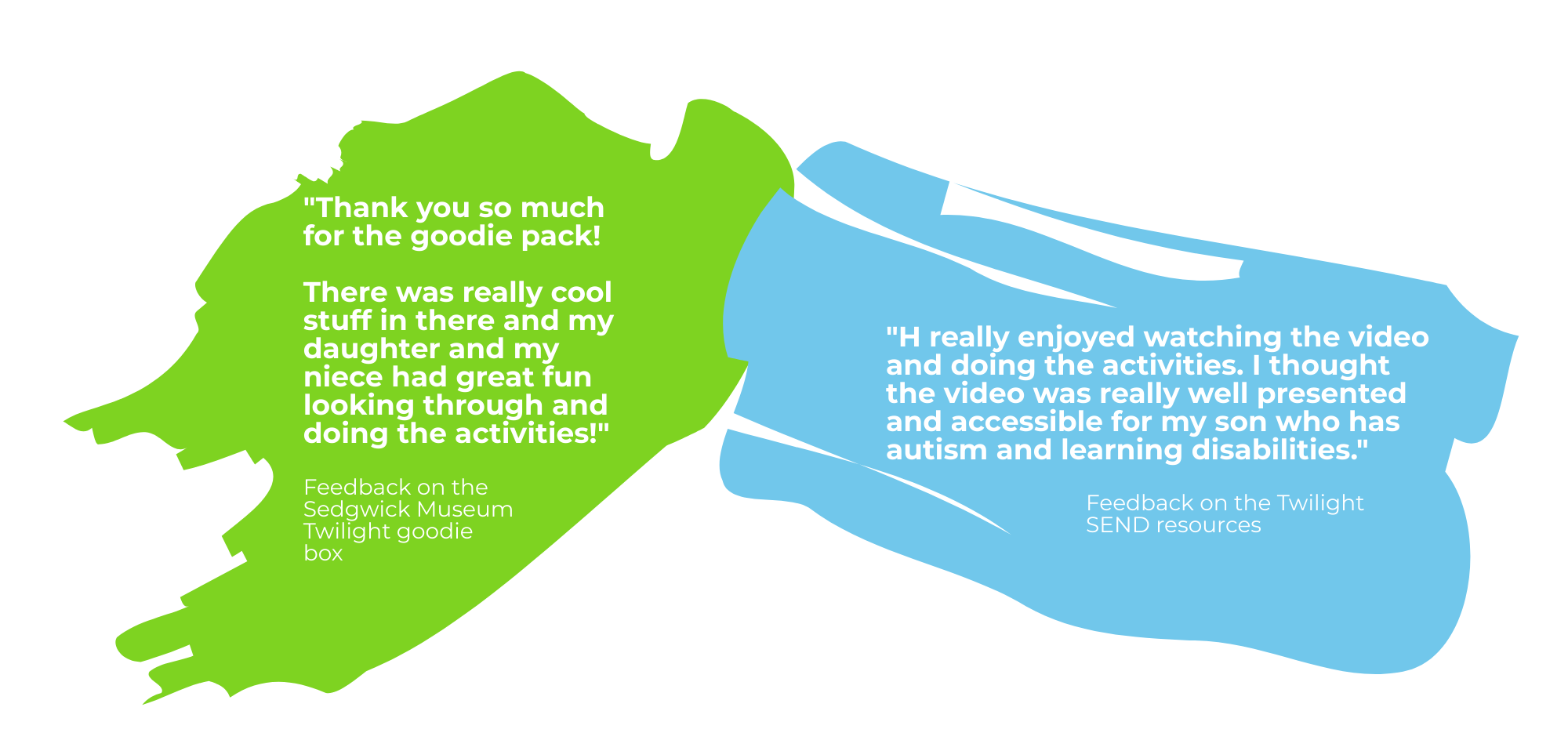
“A bit of ‘me’ time”
The UCM has a long-established partnership with the Young Parents group at Romsey Mill Children’s Centre to deliver a programme with and for young parents, focused around achieving a nationally-recognised Bronze Arts Award qualification. Young parents are among the members of our community most at risk of social isolation, and this year many members of the group were taking care of a small child alone during lockdown.
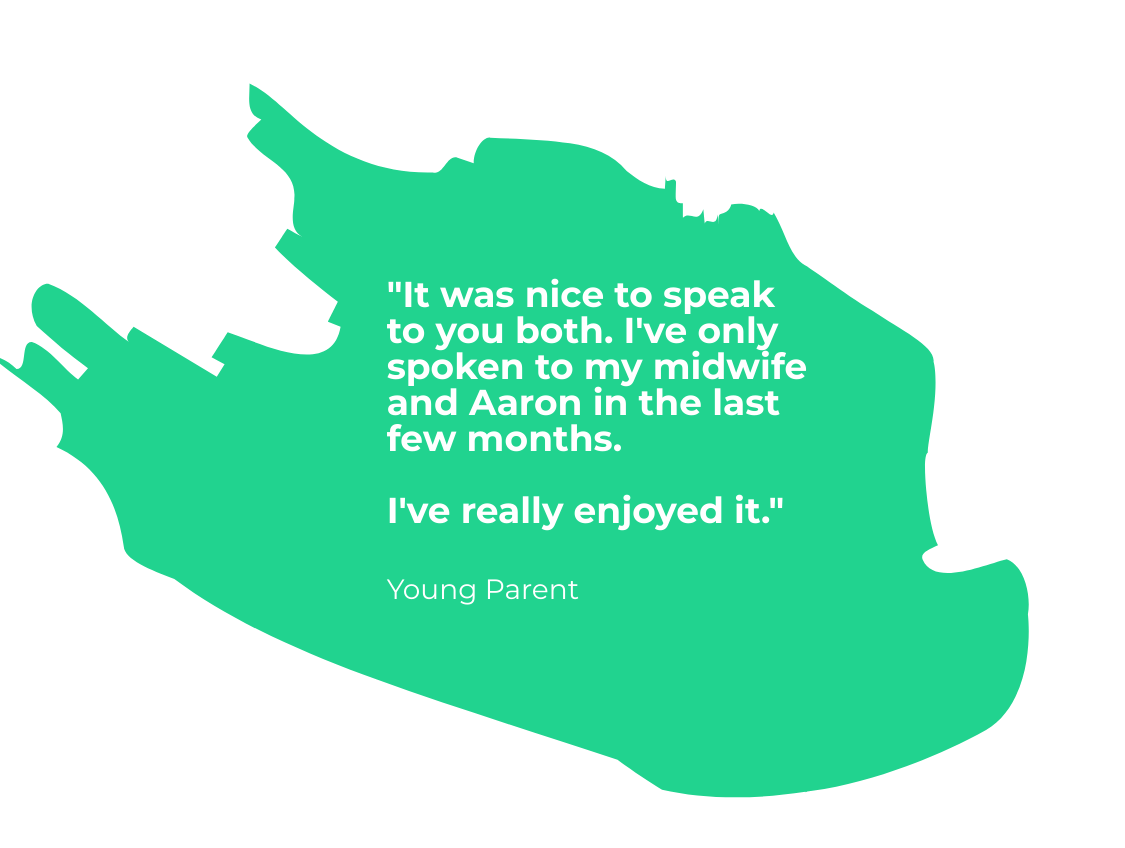
With the traditional in-person approach off the table, the team developed a menu of different ways to engage with the project to ensure that each member of the group could find a way to take part and communicate with the facilitators, including over Zoom and using WhatsApp. The young people took part in art activities using resource packs and video and live instruction sessions. They were mentored by an artist educator and were able to develop their own creativity, skills and artistic practice, fostering a sense of confidence and accomplishment and a connection to the museums and other members of the group.
“I enjoyed experimenting with the watercolour to create different paintings. I also enjoyed making the mobile for Koby with bright colours so he can see it better.”
“It was nice to have a bit of ‘me’ time.”
Five members of the group took part in the course remotely, with three on track to receive their Bronze Arts Awards, and one hoping to progress to Silver.
Onwards and upwards!
Traditional, onsite work experience has been impossible this year, but we haven’t let that stop us. In March we took part in Discover! Creative Careers Week, a national initiative led by Creative & Cultural Skills. We worked with Fenland-based 20Twenty Productions, which supports creative industry development, to produce three resources about careers in museums. UCM Events Apprentice Ella Lange recorded a video about her role and challenged young people to think about how they might go about organising an event of their own.
With digital skills becoming crucially important in our sector, we’re thrilled to be working with the British Museum to support a Museum Futures traineeship in digital skills, hosted by the Fitzwilliam Museum. Trainee Ayomi Oni is based with the Fitzwilliam Museum’s Digital & IT Team, working towards a Level 3 Diploma in Cultural Heritage. Ayomi says,
“Working physically with objects, collections and the specialist equipment used to digitally record/ conserve them, is a fundamental aspect of the traineeship that I look forward to. I also look forward to helping with (and hopefully contributing towards) the development of UCM’s project exploring the legacy of colonisation and the transatlantic slave trade.
My love of material culture from around the world and my interest in potentially gaining experience and a sector specific qualification are the reasons why I applied. The Museum Futures programme has been an excellent way to achieve this and I have been lucky to be situated within a group of amazing, talented and forward thinking young people also beginning their careers in the cultural heritage and arts sector.”
Inspiring teachers and students from afar
Earlier in the pandemic, as families across the country found themselves homeschooling, we adapted our schools page into a hub for Home Activities to support learning and fun from home. Nearly a year on, Home Activities remains the most popular section of our website.
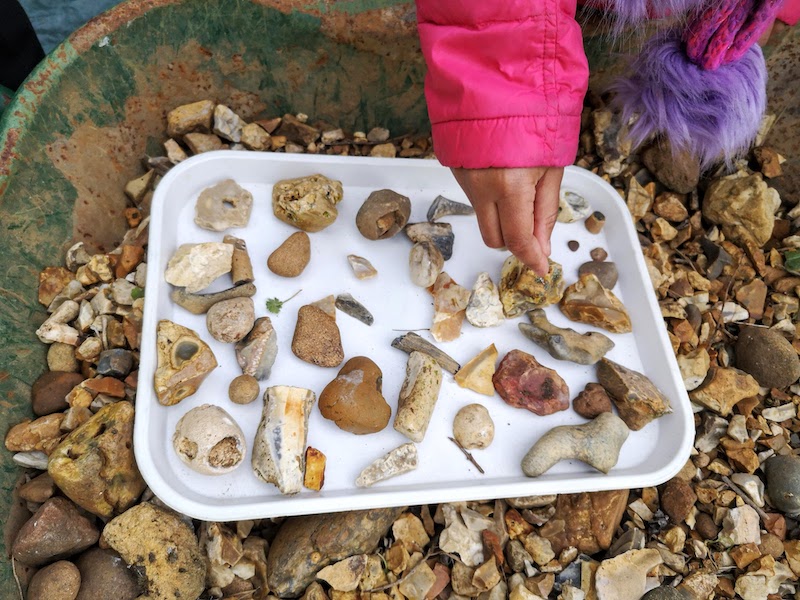
And although we can’t yet welcome school groups back onsite we are working hard to support schools in a variety of ways, including through live virtual visits, activities and professional development for teachers.
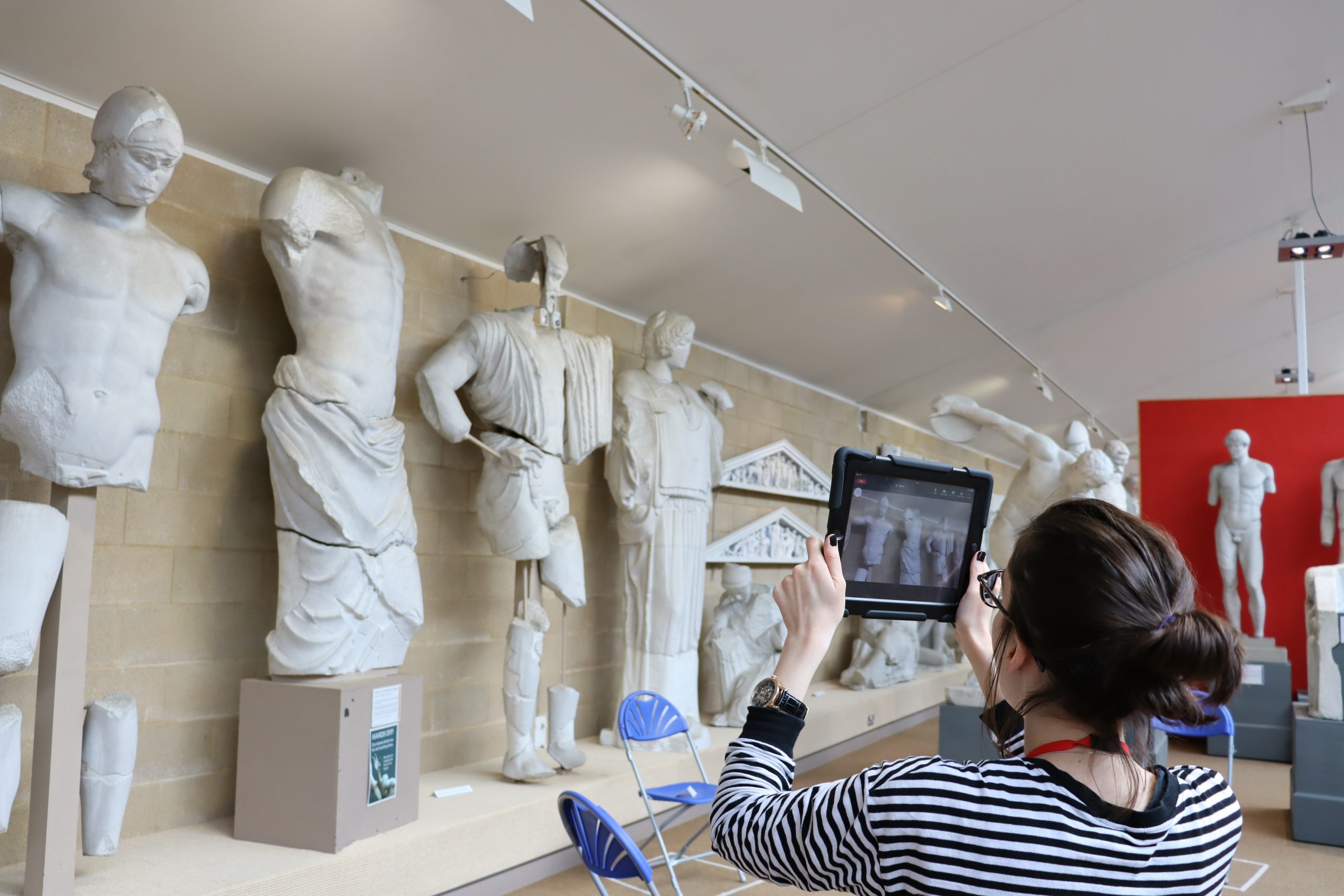
Led by the Fitzwilliam Museum Learning Team, UCM educators have piloted live online enrichment sessions for teachers as part of the Inspire: Nature project.
Thanks to the success of the pilot sessions, a further series will be run in April and May (and, if you’re a teacher, you can book a ticket on our website). Inspire: Nature is an interdisciplinary programme supporting teachers and their classes to explore the natural world and connect creatively with nature, using the UCM’s collections as a starting point.
What next?
Spring is in the air! At the time of writing, we are two steps into the lifting of England’s lockdown. Cambridge City Centre is beginning to come alive again, and the UCM museums are planning for reopening in earnest. We’re hugely grateful to recently-announced support from the Culture Recovery Fund, which is supporting cultural institutions across the University and City to renew our offer to our local communities, the East of England, and beyond. The funding will help us transition back to full opening and help us welcome (back) as many visitors as possible as safely as possible, as well as to continue to support our communities and audiences online. Behind-the-scenes, the Sedgwick Museum and MAA are getting back to work on their major collections move projects, which will make stored collections more accessible then ever before at new collections research centres.
As the impact of the pandemic continues to be felt – and is likely to be so for the longer term – we remain committed to playing our part in Cambridge’s recovery, supporting our most vulnerable communities and working together with our partners across the City. We can’t wait to see the museum galleries come alive again with visitors, and look forward to creating more opportunities to meet and encounter our collections online. Watch this space!
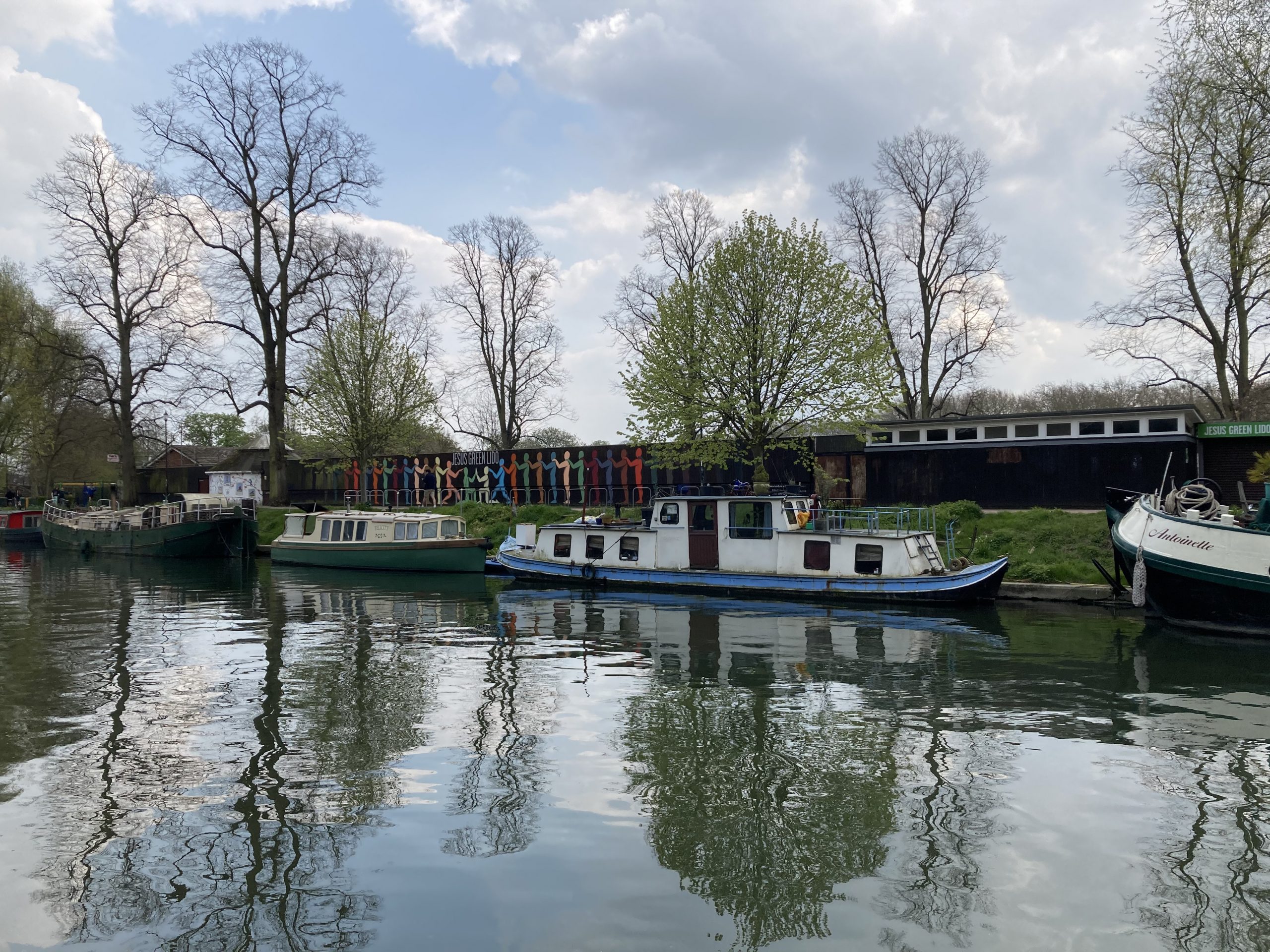
Keep an eye on our website for more details about the museums reopening. The Botanic Garden is open (and looking wonderful in the springtime!), and you can book a ticket now. In the meantime, you can explore our collections digitally; browse Curating Cambridge, our online shop; get cracking on some family activities at home; and check out our What’s On for online talks, courses and events.

